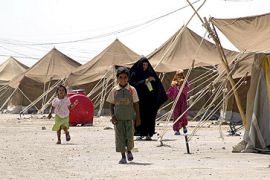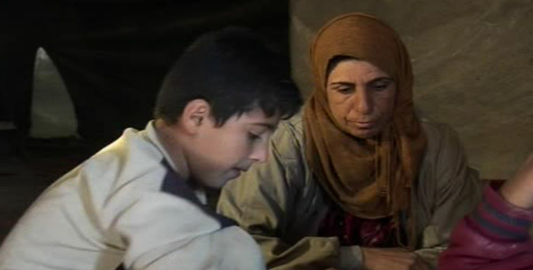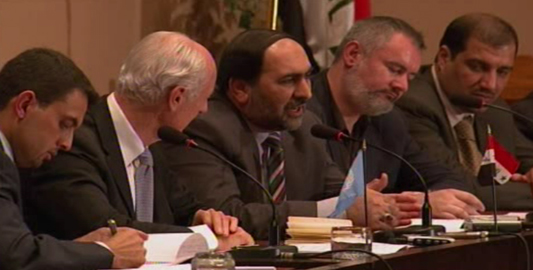Returning Iraqis pose new challenge
While violence level drops, concern grows over nation’s capacity for handling influx.

 |
| Internally displaced Iraqis say they have been abandoned by the government |
Iraqi refugees are being warned not to return home by the American military, amid concerns that the country is still too dangerous and that the Iraqi government cannot cope with the numbers.
Rear Admiral Greg Smith, a US military spokesman, says Iraq is still dangerous and that the Iraqi administration is unable to cope with a huge influx of returnees.
“The Iraqi government have even said this week that it would be beyond their means to deal with a massive return,” Smith said.
Iraqis are returning from areas within the country and from abroad, primarily Jordan and Syria, with violence levels in the country falling over the last few months.
Government figures show 538 civilians killed in the country in November, a sharp drop from monthly tolls of nearly 2,000 at the beginning of the year.
An average of 600 Iraqis are returning each day from Syria, many because their residency visas have expired.
Fewer displaced Iraqis
According to the Iraqi Red Crescent (IRC), nearly 110,000 Iraqis displaced within the country returned to their homes in October, taking the number of internally displaced persons (IDPs) to 2.19 million.
“To date, I think it has been managed as best as the Iraqi government can manage it,” Smith said.
| In video | ||
|
|
“The thing we want to make certain is that as people come back to their homes, is that in fact their home is available for them to occupy.”
Smith said that the US military and Iraqi government were working with aid agencies to provide basic services for those returning.
However, he said that other countries in the region believe that Iraq still cannot handle large numbers of returnees, particularly to the capital Baghdad.
John Cookson, Al Jazeera’s correspondent in Baghdad, says many of those returning are likely to remain refugees in their own country.
And Stefan De Mistura, the UN special representative to Iraq, told Al Jazeera that while the security situation has improved, it is still fragile, and may get worse.
Joint initiative
In a boost for the Iraqi government, the United Nations Assistance Mission for Iraq (Unami) has said it will assist the country in its efforts to organise and implement a plan for the voluntary return of refugees.
| Ice Man, Atlanta, US |
Unami, together with the Iraqi ministry of displacement and migration, has developed a Rapid Response Plan, to be launched on Thursday.
This plan aims to assist 5,000 families – approximately 30,000 people – with an immediate relief package, which will include a first support package and a repair kit for those in need, Unami said.
The response package will be delivered through the Office of the United Nations High Commissioner for Refugees and the International Organisation of Migration.
Abdul Samad Sultan, the minister of immigrants and the displaced, told Al Jazeera that progress is slow, but those internally displaced will be taken care of.
He said: “They will not return quickly, but they will return step by step.”
Food rationing
In another development, Iraq’s trade minister said in a statement on Wednesday that food rations for Iraqis might have to be cut, due to a lack of budget funds.
Abed Falah al-Sudani also warned that such a move would pose hardship for the majority of Iraqis who depend heavily on the food rations.
The comments came as critics called for the costly system to be revised or eliminated. But al-Sudani said two-thirds of approximately 26 million Iraqis rely on the rations.
He said: “More than 60 per cent of the Iraqi people depend on the food distributed with the ration card … any change in the ration items will create new problems that will add new burdens on families.”
Al-Sudani also said his ministry had requested a $7bn for the programme in next year’s budget but only received $3bn, a move that could force it to cut the number of items distributed from 10 to five.
 |
| Immigrants minister Abdul Samad Sultan, centre, admits that progress has been slow |
